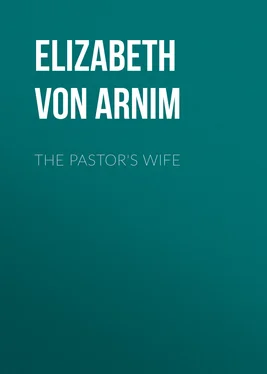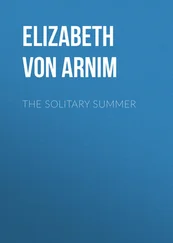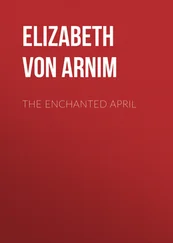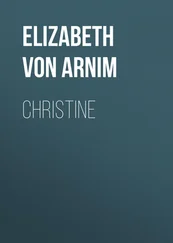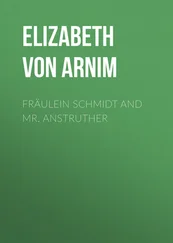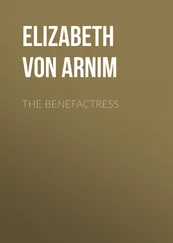Elizabeth von Arnim - The Pastor's Wife
Здесь есть возможность читать онлайн «Elizabeth von Arnim - The Pastor's Wife» — ознакомительный отрывок электронной книги совершенно бесплатно, а после прочтения отрывка купить полную версию. В некоторых случаях можно слушать аудио, скачать через торрент в формате fb2 и присутствует краткое содержание. Издательство: Иностранный паблик, Жанр: foreign_prose, foreign_antique, на английском языке. Описание произведения, (предисловие) а так же отзывы посетителей доступны на портале библиотеки ЛибКат.
- Название:The Pastor's Wife
- Автор:
- Издательство:Иностранный паблик
- Жанр:
- Год:неизвестен
- ISBN:нет данных
- Рейтинг книги:5 / 5. Голосов: 1
-
Избранное:Добавить в избранное
- Отзывы:
-
Ваша оценка:
- 100
- 1
- 2
- 3
- 4
- 5
The Pastor's Wife: краткое содержание, описание и аннотация
Предлагаем к чтению аннотацию, описание, краткое содержание или предисловие (зависит от того, что написал сам автор книги «The Pastor's Wife»). Если вы не нашли необходимую информацию о книге — напишите в комментариях, мы постараемся отыскать её.
The Pastor's Wife — читать онлайн ознакомительный отрывок
Ниже представлен текст книги, разбитый по страницам. Система сохранения места последней прочитанной страницы, позволяет с удобством читать онлайн бесплатно книгу «The Pastor's Wife», без необходимости каждый раз заново искать на чём Вы остановились. Поставьте закладку, и сможете в любой момент перейти на страницу, на которой закончили чтение.
Интервал:
Закладка:
She put up her hand to get courage by feeling the ring, for her spirit was fainting within her—she had just caught sight of the cathedral. The ring had been slung on the chain alongside the confirmation cross because it was impossible to wear it on her thumb; and out there in Switzerland, where one was simple, it had seemed a most natural and obvious place to put it. Yet now, as the fly rattled over the cobbles of the Close and the familiar cathedral rose before her like a menace, she hung her head and greatly doubted but what the juxtaposition was wicked.
Nobody was on the doorstep when she arrived beneath the great cedar that spread its shade, an intensified bit of dripping gloom where all was gloom and dripping, across from the lawn to the Palace's entrance, except the butler, whose black clothes struck her instantly as very neat and smooth, and his underling, a youth kept carefully a little on the side of a suitable episcopal shabbiness. She had telegraphed her train from Paddington, but that, of course, was no reason why any one should be on the doorstep. It was she whose business lay with doorsteps when people arrived or left, she was the one who welcomed and who sped, and, since she could not welcome herself, there was nobody there to do it.
She stole a nervous look at Wilson as he helped her out, but his face was a blank. The boy on her other side had an expression, she thought, as though under happier conditions he might have let himself go in a smirk, and she turned her eyes away with a little sick feeling. Did they know already, all of them, that she had left her aunt's a week ago? But, indeed, that seemed a small thing now compared with the things she had done since.
"I'm a dead girl," thought Ingeborg, as she passed beneath her parents' porch.
The servants brought in her luggage, off which in her newness at deceit she had not thought to scrape the continental labels, and she crossed the hall, treading on the dim splashes of lovely blurred colour that fell from the vast stained glass windows on to the stone flags of its floor. It was the noblest hall, as bare of stuffs and carpets as the cathedral itself, and she looked more than insignificant going across it to the carved oak door that opened into the wide panelled passage leading to the drawing-room, a little figure braced to a miserable courage, the smallest thing to be going to defy powers of which this magnificence was only one of the expressions.
Her mother was as usual on her sofa near a fire whose heat, that warm day, was mitigated by the windows being wide open. Beside her was her own particular table with the usual flowers, needlework, devotional books, and biographies of good men. It was difficult to believe her mother had got off that sofa nine times to go to bed, had dressed and undressed and had meals—thirty-six of them, counted Ingeborg mechanically, while she looked about for the Bishop, if you excluded the before breakfast tea, forty-five if you didn't—since she saw her last, so immovable did she appear, so exactly in the same position and composed into the same lines as she had been nine days before. The room was full of the singing of thrushes, quite deafeningly full, as she opened the door, for the windows gave straight into the green and soppy garden and it was a day of many worms. Judith was making tea as far away from the fire as she could get, and there was no sign of the Bishop.
"Is that you, Ingeborg?" said her mother, turning her face, grown pale with years of being shut up, to the door.
Ingeborg's mother had found the sofa as other people find salvation. She was not ill. She had simply discovered in it a refuge and a very present help in all the troubles and turmoil of life, and in especial a shield and buckler when it came to dealing with the Bishop. It is not easy for the married, she had found when first casting about for one, to hit on a refuge from each other that shall be honourable to both. In a moment of insight she perceived the sofa. Here was a blameless object that would separate her entirely from duties and responsibilities of every sort. It was respectable; it was unassailably effective; it was not included in the Commandments. All she had to do was to cling to it, and nobody could make her do or be anything. She accordingly got on to it and had stayed there ever since, mysteriously frail, an object of solicitude and sympathy, a being before whose helplessness the most aggressive or aggrieved husband must needs be helpless, too. And she had gradually acquired the sofa look, and was now very definitely a slightly plaintive but persistently patient Christian lady.
"Is that you, Ingeborg?" she said, turning her head.
"Yes, mother," said Ingeborg, hesitating in spite of herself on the threshold.
She looked round anxiously, but the Bishop was not lurking anywhere in the big room.
"Come in, dear, and shut the door. You see the windows are open."
Judith glanced up at her a moment from her tea-making and did not move. Even in the midst of her terrors Ingeborg was astonished, after not having seen it for a while, at her loveliness. She seemed to have taken the sodden greys of the afternoon, the dulness and the gathering dusk, and made out of their gloom the one perfect background for her beauty.
"We thought you would have written," said Mrs. Bullivant, putting her cheek in a position convenient for the kiss that was to be applied to it.
"I—I telegraphed," said Ingeborg, applying the kiss.
"Yes, dear, but only about your train."
"I—thought that was enough."
"But, Ingeborg dear, such a great occasion. One of the great occasions of life. We did expect a little notice, didn't we, Judith?"
"Notice?" said Ingeborg faintly.
"Your father was wounded, dear. He thought it showed so little real love for your parents and your sister."
"But—" said Ingeborg, looking from one to the other.
"We wrote to you at once—directly we knew. Didn't we, Judith?"
"Of course," said Judith.
Ingeborg stood flushing and turning pale. Had one of the Dent's Tour people somehow found out where she lived and written about her engagement and the impossible had happened and they weren't going to mind? Was it possible? Did they know? And were taking it like this? If only she had called at her aunt's house on the way to Paddington and got the letters—what miserable hours of terror she would have been spared!
"But—" she began. Then the immense relief of it suddenly flooded her whole being with a delicious warm softness. They did know. Somehow. And a miracle had happened. Oh, how kind God was!
She dropped on her knees by the sofa and began to kiss her mother's hand, which surprised Mrs. Bullivant; and indeed it is a foreign trick, picked up mostly by those who go abroad. "Mother," she said, "are you really pleased about it? You don't mind then?"
"Mind?" said Mrs. Bullivant.
"Oh, how glad, how glad I am. And father? What does he say? Does he—does he mind?"
"Mind?" repeated Mrs. Bullivant.
"Father is very pleased, I think," said Judith, with what in one less lovely would have been a slight pursing of the lips. And she twisted a remarkable diamond ring she was wearing straight.
"Father is—pleased?" echoed Ingeborg, quite awe-struck by the amount and quality of these reliefs.
"I must say I think it is really good of your dear father to be pleased, when he loses—" began Mrs. Bullivant.
"Oh, yes, yes," interrupted the overcome Ingeborg, "it's a wonder—a wonder of God."
"Ingeborg dear," her mother gently rebuked, for this was excess; and Judith looked still more what would have been a little pursed in any other woman.
"When he loses," then resumed Mrs. Bullivant with the plaintive determination of one who considers it the least she may expect as a sofa-ridden mother to be allowed to finish her sentences, "so much."
Читать дальшеИнтервал:
Закладка:
Похожие книги на «The Pastor's Wife»
Представляем Вашему вниманию похожие книги на «The Pastor's Wife» списком для выбора. Мы отобрали схожую по названию и смыслу литературу в надежде предоставить читателям больше вариантов отыскать новые, интересные, ещё непрочитанные произведения.
Обсуждение, отзывы о книге «The Pastor's Wife» и просто собственные мнения читателей. Оставьте ваши комментарии, напишите, что Вы думаете о произведении, его смысле или главных героях. Укажите что конкретно понравилось, а что нет, и почему Вы так считаете.
